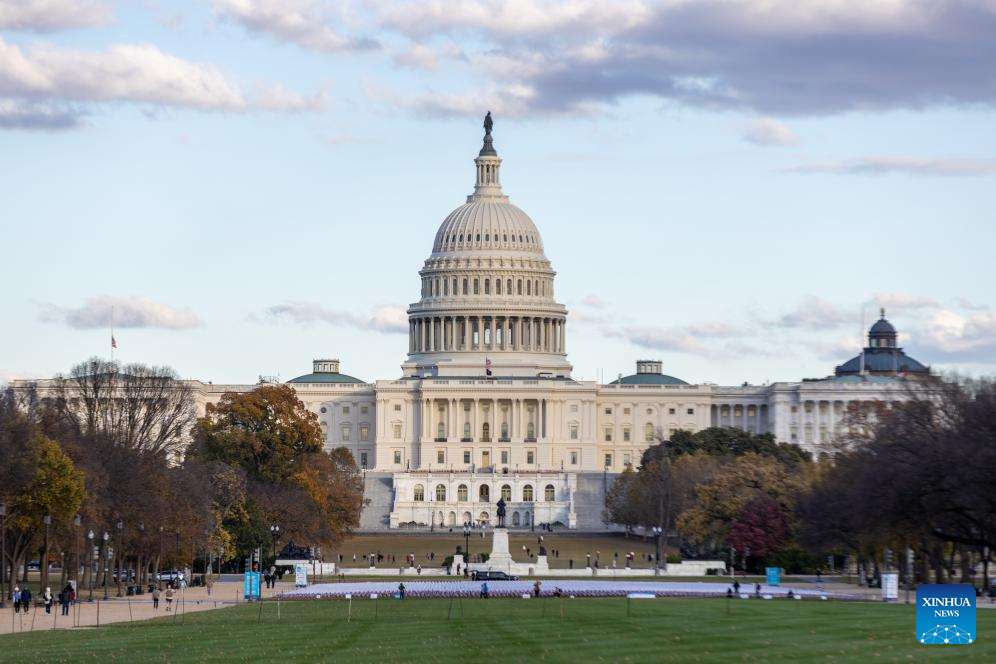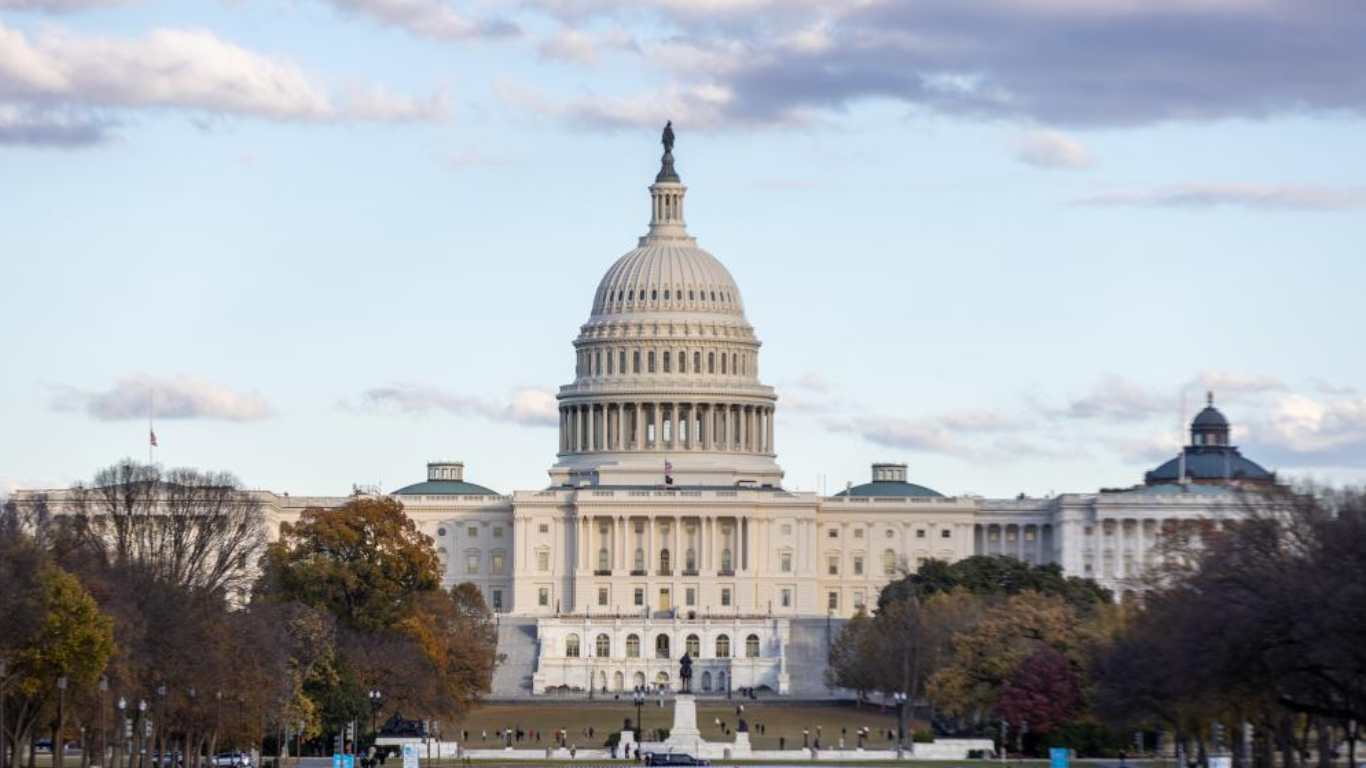 This photo taken on Nov. 10, 2025 shows the U.S. Capitol in Washington, D.C., the United States. [Photo/Xinhua]
This photo taken on Nov. 10, 2025 shows the U.S. Capitol in Washington, D.C., the United States. [Photo/Xinhua]
The U.S. Senate on Monday night passed a bipartisan spending package in a bid to end the longest government shutdown, which has entered its 41st day and has brought mounting consequences for Americans.
This came after the upper chamber voted 60-40 in a key procedural vote to move forward with the spending package on Sunday night. Eight Democrats joined Republicans to advance the measure.
The Senate voted 60-40 to approve the spending package, which would fund most federal agencies at current levels through Jan. 30, and fund the Agriculture Department, the Veterans Affairs Department and military construction projects, and the operations of Congress, for the full fiscal year.
This package will provide full-year funding for the Supplemental Nutrition Assistance Program, known as SNAP, whose funding was put in jeopardy amid the prolonged government shutdown.
As part of Democrats' agreement to end the shutdown, Senate Majority Leader John Thune promised Senate Democrats a vote "no later than second week in December" to enhanced Affordable Care Act subsidies.
Some Democrats voiced objection, arguing that the agreement merely promises a vote and does not ensure the continuation of the subsidy, which is set to expire at the end of the year. Protecting health care benefits remains the Democrats' central demand in the current shutdown standoff.
Senate Democratic leader Chuck Schumer of New York is among those who voted against the package.
Bernie Sanders, a Vermont independent who caucuses with Democrats, called the deal a "disaster," saying that Democrats gained almost nothing from it except a symbolic vote on health insurance subsidies.
U.S. media have widely described the eight Democrats as "caving in," but the lawmakers said that their compromise with the Republicans was primarily driven by the fact that the government shutdown had already caused too much pain for the American people.
The bill was revised from the version previously passed by the House. After being approved by the Senate, it still requires House approval and the president's signature before it can fully resolve the government shutdown stalemate.
This package covers only three of the 12 annual appropriations bills Congress must pass each year, leaving nine bills to be finalized.
During the period when the temporary funding measure is in effect, both parties will continue negotiating the remaining appropriations, meaning the U.S. government could face another potential shutdown in just over two months.


 Share:
Share: 




 京公网安备 11010802027341号
京公网安备 11010802027341号